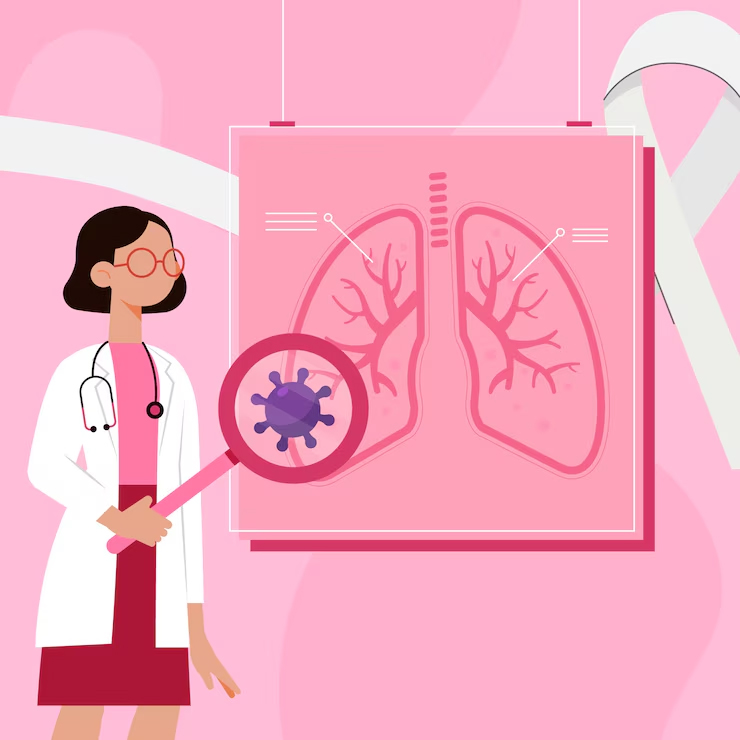World Cancer Day 2025 Expert Explains The Connection Between Lung Cancer And Other Health Conditions
Smoking and pollution have been recognised as significant contributors to lung cancers. But did you know lung cancer can also be caused due to other health conditions? Lung cancer occurs when cells in the lungs grow abnormally and form tumours. It is one of the leading causes of death worldwide, hence, it is crucial to understand the contributors to this health condition. This will help in early detection, better management, and improved patient outcomes for lung cancer. We spoke to who explained the connection between lung cancer and other health conditions.

Smoking is the most common risk factor shared between lung cancer and CVD. Patients with CVD have a 67% increased risk of lung cancer, as stated in a 2015 study. Long-term exposure to tobacco is associated with heart disease. "In most cases it damages the blood vessels, leading to a much higher chance of heart attacks and strokes. In such cases, certain treatments for lung cancer, including chemotherapy and radiation therapy can worsen heart problems by inducing inflammation and causing damage to the heart tissue of the patient," explained Dr Maniar.
It is highly possible that smokers can develop COPD, which is an important risk factor for developing lung cancer and predates lung cancer in up to 70–80% of cases, according to the Journal of Thoracic Disease. "COPD represents chronic bronchitis and emphysema, which involves chronic inflammation and injury to the lungs, making them more prone to carcinogenic changes. Studies have suggested that patients suffering from COPD have a highly increased risk of developing lung cancer even in nonsmokers. The chronic inflammation and genetic mutations associated with COPD create an environment that is conducive to cancer," added Dr Maniar.

Finding out one has been diagnosed with lung cancer can be overwhelming, inducing feelings of fear, anxiety and depression. On the other hand, people with a previous history of psychological conditions like depression, would have a potentially increased risk for lung cancer in their lifetime from factors, such as smoking, poor health behaviours, or less access to medical care, according to a 2023 study. Mental health interventions, in combination with counselling, can facilitate the improvement of quality of life and adherence to treatment in lung cancer patients.
"The immune system automatically starts fighting with the cancer formation cells by identifying and removing abnormal cells. For instance, diseases like HIV/AIDS, auto-immune diseases, and long-term immunosuppressive therapies, in cases like organ transplantation, can weaken the immune system to respond appropriately and thus increase the risk of lung cancer," added Dr Maniar. Lung cancer can also weaken the immune function in patients and leave them more vulnerable to infections and other diseases that can occur as side effects of the treatment therapy.

Early diagnosis plays a crucial role in determining the treatment course of a lung cancer patient. "It allows patients to explore multiple treatment options, such as surgery, targeted therapies, and advanced treatments that can improve their overall survival rates. Additionally, an oncologist can formulate a personalised treatment plan based on the cancer stage, genetic profile, and overall health of the patient if diagnosed early," said Dr Maniar.
The significance of early diagnosis is underscored by the alarming statistics surrounding lung cancer. According to the 2018 study, lung cancer accounts for 13% of all new cancer cases and 19% of cancer-related deaths worldwide.
The integration of different types of treatment methods and specialists in treatment care, such as oncologists, cardiologists, and mental health professionals, will allow the patients to have a holistic approach to the process, not only attacking cancer but also controlling coexisting health conditions.
Dr Maniar concluded, "Since lung cancer is linked to many other conditions, it is important to have a well-rounded treatment plan. Improving patients' outcomes can become possible through screening at an earlier stage, necessary lifestyle changes, and proper coordination involving doctors at every step of the way."
[ This article contains information provided by an expert and is for informational purposes only. Hence, we advise you to consult your professional if you are dealing with any health issue to avoid complications.]










